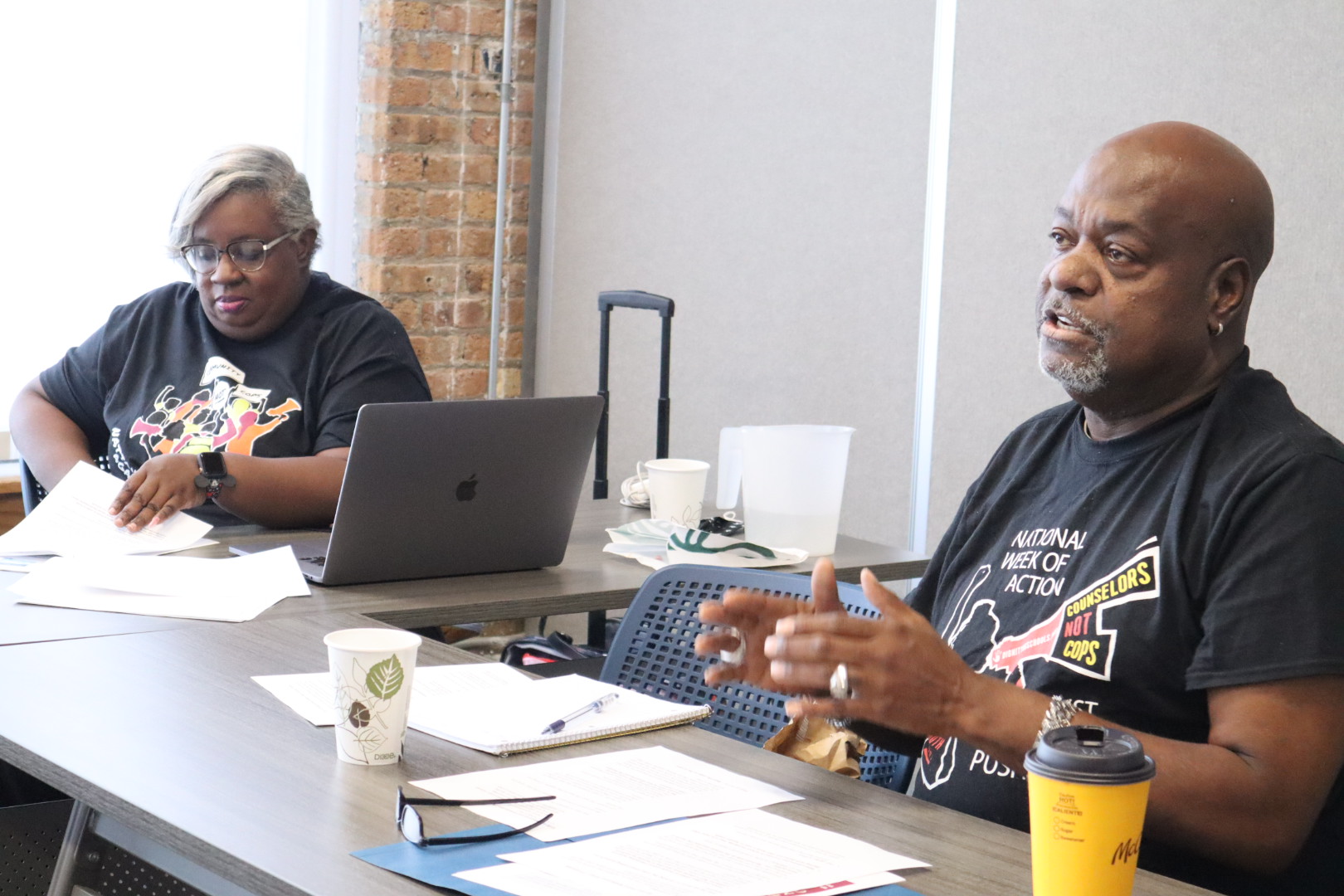Elementary Justice Leader Shares Insights on Parent-Led Restorative Justice Efforts with National Magazine

“Dexter Leggin is Parent Liaison at Genevieve Melody Stem Elementary School and co-chair of the Elementary Justice Campaign, an effort through Community Organizing and Family Issues (COFI), an organization that’s been training Chicago parents in leadership and advocacy since 1995. Leggin, a single father, foster parent and restorative justice practitioner, says there’s no doubt his involvement with COFI, an organization that’s been training Chicago parents in leadership and advocacy since 1995, made him a better father.
EJC aims to ‘break the cycle of criminalization of low-income youth of color by eliminating unnecessarily punitive discipline policies and practices in Chicago’s public elementary schools,’ says Leggin. He says he’s not anti-police but in neighborhoods where children see police on every corner, they shouldn’t be the first faces students see at school, as well.
Though there’s limited empirical research on the success of parent-led programs, Leggin and proponents speak to their impact. He works to limit the interactions students have with punitive systems during the school day. ‘My job is to try to bring it down and try to see what’s wrong and see if I can help. Sometimes I can’t. But nine out of ten times I can,’ says Leggin. Restorative justice practices support students through a process of taking responsibility for their actions through reflection—often in collaboration with teachers and other students. In contrast, suspensions cost students tens of millions of instruction days each year. The Counseling Not Criminalization in Schools Act stops the use of federal funds for police maintenance or growth in school and invests in the age-appropriate mental and social services for youth to gradually end the school-to-prison pipeline.
Leggin, who was heavily involved in the National Week of Action Against School Pushout: Community Not Cops campaign via EJC has found, for many students, once they have the opportunity to express themselves and reflect, no future discipline is needed.”
Read full article here.


 COFI
COFI